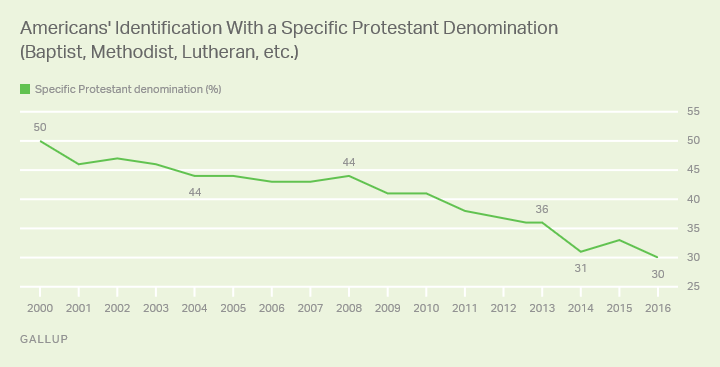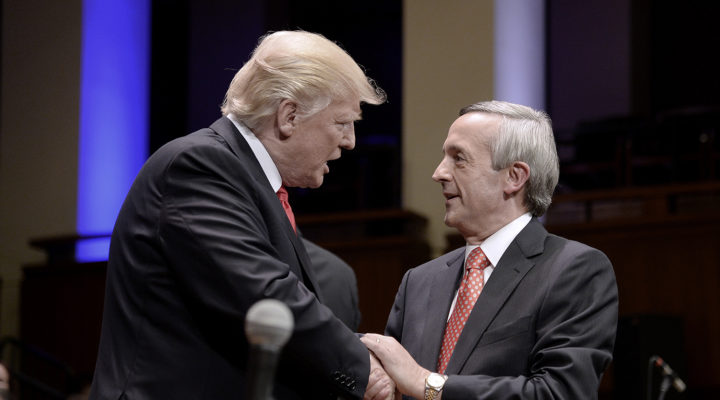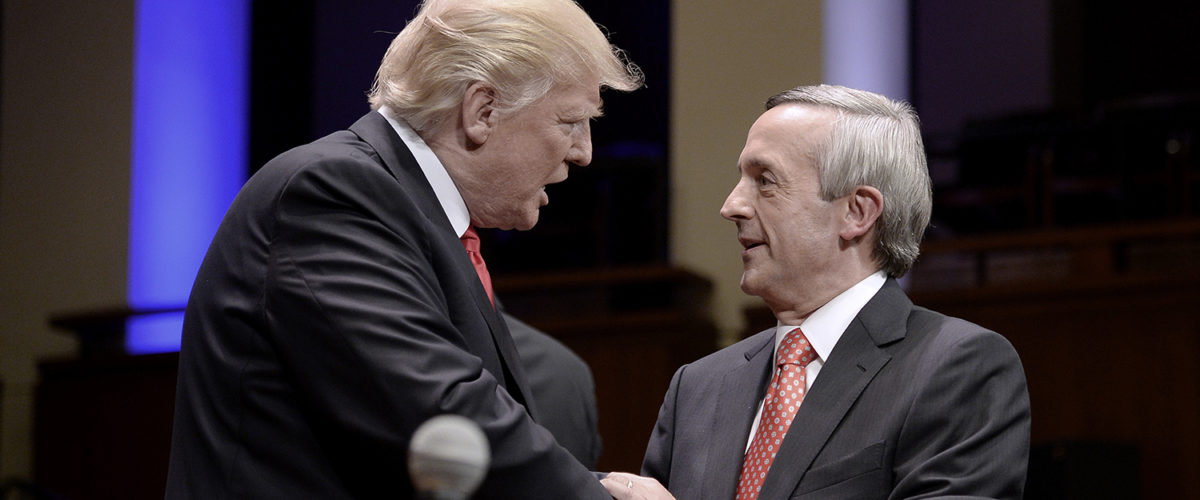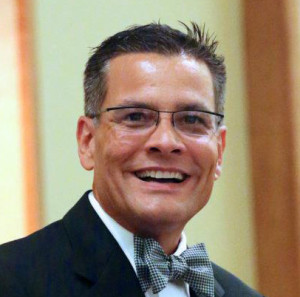As Christian denominations continue their downward spiral, some experts say the rapid descent is caused by the increasing politicization of the church and the erosion of church-state separation.
A Gallup poll released last month found that the percentage of American Protestants identifying with a denomination has plummeted from 50 percent to 30 percent since 2000.
Minsters and congregational coaches note that high-profile Christian arguments over issues like gay marriage and immigration are a major turnoff for those inside and outside congregations.
And, one minister said, organized faith took one on the chin this week when Southern Baptist megachurch pastor Robert Jeffress’ declared President Trump has God’s blessing “to take out” North Korean leader Kim Jong Un.
“The more denominations continue to become politically centric in their … application of theology, the more we are going to see society reject that denominationalism,” said Mitch Randall, pastor at NorthHaven Church in Norman, Okla.
Tracking the decline
Gallup identified two key trends driving the decline. One is the continuing growth of the “nones,” those Americans who claim no religious identity.
The percentages of other groups — Catholics, Mormons and non-Christian faiths — have remained roughly stable since 2000, Gallup said.
The growth of “nones” from 10 percent to 20 percent was accompanied by a decrease in Protestant adherents from 57 percent to 47 percent, Gallup said.
“Therefore, there are fewer Protestants of any kind in the American population today, and the pool of those who identify with a specific Protestant denomination is smaller,” Gallup reported.
Another reason for the decline is that fewer and fewer Christians identify themselves by denomination, even if they and their churches are part of one.
Those most inclined to identify with a denomination are Baptists, at 10 percent, Gallup said. Another 3 percent identify as Southern Baptists — which is down from 8 percent in 2000.
The SBC’s decline has been well documented. Baptist News Global reported that decline in June, including a drop of more than 77,000 members from 2015 to 2016 alone.
Gallup made similar observations.
 “Southern Baptist membership data show that their churches have lost members, and it may also be those who may actually attend an official Southern Baptist church increasingly identify as just “Baptist” rather than as Southern Baptist, specifically.”
“Southern Baptist membership data show that their churches have lost members, and it may also be those who may actually attend an official Southern Baptist church increasingly identify as just “Baptist” rather than as Southern Baptist, specifically.”
‘Church-state separation vitally important’
Whatever the denomination, Americans see churches embroiled in controversy and want no part of it, said Eddie Hammett, a North Carolina-based church and clergy consultant.
“The general population looks at us as a place they don’t want to be,” he said.
Highly publicized internal debates over issues like gay marriage, the economy and politics is a major turn off to many.
“They don’t want to be in that fight. They want to be in a place of healing and hope,” Hammett said.
Another challenge is generational.
“The primary leaders in most denominations are of the Boomer and Builder generations, and their value system is not what is going to attract the younger generations,” Hammett said.
No wonder, he added, “the ‘nones’ are taking over.’”
South-Carolina-based church and clergy consultant Mark Tidsworth sees another factor dragging down denominations.
“Churches have blended culture with their faith so much that now that the culture is radically changing, it’s leading to a decline in participation in church,” he said.
The positive side to the trend is the opportunity to rediscover a more authentic form of Christianity.
“We can re-examine our faith and return to the First Century, where the church was a movement and counter-cultural,” he said.
What’s needed, Randall said, is a return to valuing scripture and the Constitution.
“As Christians and followers of Jesus we should always go back to Scripture and more importantly to what Jesus did and said,” he said.
Jeffress cited Romans 13 — that people are subject to government authority — in backing any Trump action against North Korea. But, Randall said, he overlooked the previous chapter, which calls for Christians to practice hospitality and to be “patient in affliction.”
There’s nothing wrong with Christians who want to focus on the primacy of government authority — until they have the president’s ear, as Jeffress does.
“It’s why church-state separation is vitally important to our culture today,” Randall said.




